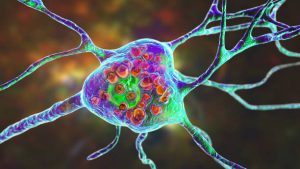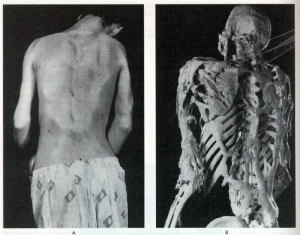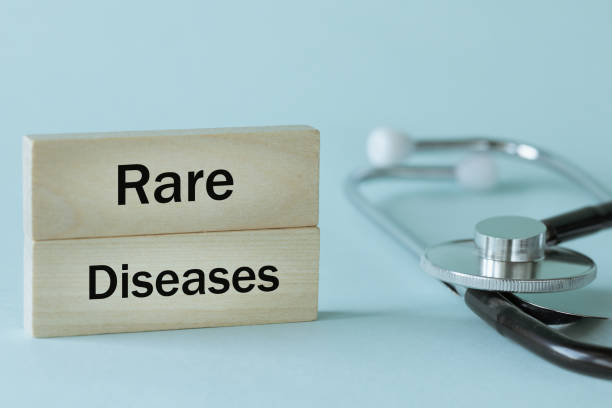When we hear tales of mysterious symptoms and diagnoses that seem more like riddles than medical conditions, it’s often because we’ve entered the perplexing world of rare diseases. These lesser-known illnesses can involve symptoms that would baffle even the most seasoned mystery novel aficionado. It’s a realm where patients and doctors alike must often turn into detectives, piecing together clues that can lead to life-altering discoveries.
Rare diseases, by their very nature, stand on the periphery of common medical knowledge, prompting us to stretch the boundaries of science and empathy. Whether you’re a patient, a loved one, or a curious soul, the journey into the labyrinth of atypical symptoms and rarities begins now.
Understanding Rare Diseases
Contents

The World Health Organization defines rare diseases as conditions affecting a small percentage of the population. Yet, when considered collectively, these ailments are anything but rare, affecting millions worldwide. Each one presents a unique challenge due to the limited information and resources available to understand and manage them.
Imagine a puzzle spread across a table, with more missing pieces than those connecting. This is the reality for those facing rare diseases. Awareness and research form the cornerstone of hope for these conditions – an endeavour where every contribution makes a significant difference. The enigmatic nature of rare diseases necessitates a dedicated focus, where understanding becomes the first step in unravelling their secrets.
As we delve into this uncharted territory, let’s not rely on [Rare Diseases] as a mere phrase but see it as a call to action, a reminder that these conditions demand our attention and resources for the sake of those they silently affect.
Strange Symptoms of Rare Diseases

In the medical world, symptoms act as landmarks guiding the way to a diagnosis. However, rare diseases often present with symptoms so strange they could easily be mistaken for fiction. Imagine laughing uncontrollably when nervous—a symptom of the rare condition known as pseudobulbar affect—or being allergic to water, a harsh reality for those with aquagenic urticaria.
Some rare diseases carry symptoms that could double as party tricks, like Ehlers-Danlos syndrome, which can grant an individual extreme flexibility, but at the price of chronic pain and frequent injuries. These symptoms challenge our expectations, turning the mundane into the extraordinary and the simple act of diagnosis into a complex puzzle.
Stranger still is the journey these symptoms force upon patients. Symptoms such as these can complicate both diagnosis and treatment, often requiring patients to travel extensively for answers, hobble together networks of specialists, and advocate fiercely for recognition and research. In this pursuit, every piece of the puzzle, no matter how strange, is a vital clue in constructing a clearer picture of these enigmatic [Rare Diseases].
Case Studies

Case studies often reveal the intricate dance between bizarre symptoms and the pursuit of answers. Take, for instance, a person who experiences seizures triggered by mathematics—a real condition known as maths-induced seizures. Or Fibrodysplasia ossificans progressiva (FOP), where muscles and connective tissues turn to bone after injury, quite literally a body turning to stone.
These medical odysseys, rich with human determination and resilience, avoid a repetitive chorus of [Rare Diseases], instead spotlighting individual experiences. Each narrative details the often arduous trek from initial symptoms to the moment of diagnosis, offering invaluable insights not only to the medical community but also to fellow patients and the wider public.
These stories ask us to confront the reality that beneath each clinical case study lies an individual—often isolated by their rare condition, sometimes misunderstood by the world around them. Their path to a proper diagnosis underscores the crucial nature of awareness, research, and empathy in illuminating these rare corners of human experience.
The Impact on Patients and Families

When confronted with a rare disease, the impact on patients and their families extends far beyond the physical symptoms. The tentacles of these conditions often reach into emotional well-being, financial stability, and social interaction. Uncertainty becomes a familiar companion, and the search for answers is a relentless quest clouded by frustration and fatigue.
Families navigating the world of [Rare Diseases] must often adjust expectations, advocate tirelessly, and cling to hope—even when it whispers. Communities—both virtual and in-person—become sanctuaries, offering a collective embrace where shared experiences resonate more powerfully than any textbook definition ever could.
Within these circles, the term [Rare Diseases] transcends medical vocabulary to embody the shared experiences of uncertainty, challenge, and, ultimately, an unyielding determination to find clarity amidst the chaos.
Advancements in Diagnosis and Treatment

Despite the complexity and rarity of these conditions, the horizon is brightened by the flame of technological progress and scientific breakthroughs. Cutting-edge gene sequencing, telemedicine, and personalized therapy are opening doors that once seemed sealed shut for those affected by [Rare Diseases].
These advancements not only bring hope but also tangible results, as once elusive diagnoses become attainable and treatments more targeted. Breakthroughs in medicine and technology are pivotal, as they can shorten the diagnostic odyssey and improve the quality of life for patients and their families.
It’s in the alchemy of innovation, patience, and dedication that the most significant victories against [Rare Diseases] are won. Each step forward in diagnosis and treatment reinforces the bridge between the unknown and the known, the hopeless and the hopeful.
Raising Awareness and Support Initiatives

Rare Disease Day, observed on the last day of February, symbolises a global commitment to raising awareness for [Rare Diseases]. It’s a day when those affected and their advocates join hands with healthcare professionals, researchers, and policymakers to illuminate the needs and challenges of the rare disease community.
- Educational campaigns and fundraisers
- Cross-border collaborations for research
- Efforts to increase accessibility to treatments
Across the globe, countless individuals and organisations are working tirelessly to ensure rare diseases gain the visibility and attention they deserve. These efforts are more than acts of goodwill – they are the driving force behind a broader movement to topple barriers to research, accurate diagnoses, and effective treatment options. Such collective actions aren’t simply altruistic; they represent integral campaigns in a fight for medical progress and patient advocacy.
In closing, the odyssey faced by those with rare conditions delves deep into the realms of the unknown. With symptoms that mystify and treatments that can seem just out of reach, the label of rare diseases acts as both a clarion call for greater insight and a symbol that encapsulates the need for enduring compassion in the face of medical adversity.
As we navigate through the complexities of these illnesses, the indomitable spirit of patients, their loved ones, and pioneering medical professionals carves a path toward enlightenment. It’s a collective effort to ensure that every confusing symptom and every formidable challenge posed by rare conditions is met with renewed resolve and illuminating action within our shared international narrative on health. Joining hands in solidarity, we can transform the enigmatic nature of rare diseases into gateways for possibilities, with each bewildering symptom guiding us towards a deeper comprehension. Together, our shared dedication to rare diseases paves the way not only for understanding but also for hope and remedies that once seemed like distant dreams.

